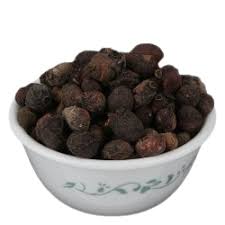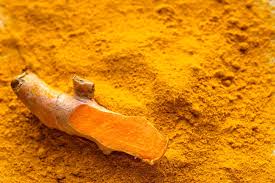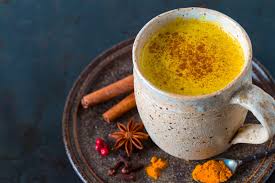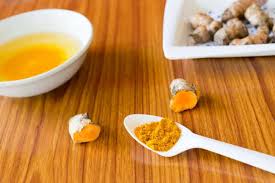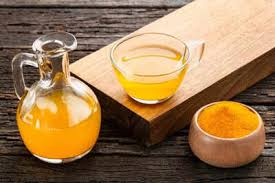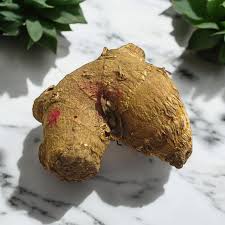
Potential Drug Interactions with Kaali Haldi: What to Watch For
Kaali Haldi, also known as Black Turmeric (Curcuma caesia), is a powerful Ayurvedic herb renowned for its anti-inflammatory, antioxidant, and immune-supporting properties. While Kaali Haldi offers numerous health benefits, it is essential to understand its potential interactions with medications. Certain bioactive compounds in Kaali Haldi, including curcuminoids, flavonoids, and essential oils, can influence how drugs are metabolized, potentially affecting their efficacy or safety. Awareness of these interactions is critical for individuals taking prescription medications, supplements, or herbal remedies, ensuring safe and effective use of Kaali Haldi alongside conventional treatments.
Long Description:
- Understanding Kaali Haldi and Its Bioactive Compounds:
- Curcuminoids: Provide anti-inflammatory, antioxidant, and immune-modulating effects.
- Flavonoids: Protect cells from oxidative stress and support cardiovascular and liver health.
- Essential Oils: Contain compounds like ar-turmerone and camphor, offering antimicrobial and metabolic support.
- These compounds contribute to Kaali Haldi’s therapeutic benefits but may also interact with certain medications.
- How Drug Interactions Occur:
- Kaali Haldi compounds can affect drug-metabolizing enzymes in the liver, such as cytochrome P450 enzymes, altering how medications are absorbed or broken down.
- It may also affect blood clotting mechanisms due to natural anti-platelet effects, increasing bleeding risk with certain drugs.
- Understanding potential interactions is crucial to prevent side effects or reduced therapeutic outcomes.
- Medications That May Interact with Kaali Haldi:
- Blood Thinners (Anticoagulants): Drugs like warfarin, aspirin, or heparin may have enhanced bleeding risk if taken with Kaali Haldi.
- Diabetes Medications: Kaali Haldi can lower blood sugar, potentially enhancing the effect of antidiabetic drugs and causing hypoglycemia.
- Blood Pressure Medications: May interact with antihypertensive drugs, leading to excessively low blood pressure in some cases.
- Immunosuppressants: Herbs that modulate immunity may alter the effectiveness of medications for autoimmune diseases or organ transplants.
- Anticoagulant or Antiplatelet Supplements: Combining Kaali Haldi with supplements like garlic, ginkgo, or fish oil may increase bleeding tendencies.
- Mechanisms Behind Interactions:
- Enzyme Modulation: Curcuminoids can inhibit or enhance liver enzymes, affecting drug metabolism.
- Platelet Aggregation: Kaali Haldi’s anti-platelet activity may enhance or reduce effects of blood-thinning medications.
- Blood Sugar Regulation: Hypoglycemic compounds in Kaali Haldi may amplify the effects of antidiabetic medications.
- Immune Modulation: Can influence medications targeting immune responses, requiring careful monitoring.
- Safety Guidelines for Using Kaali Haldi with Medications:
- Consult a Healthcare Provider: Always inform your doctor before starting Kaali Haldi supplements if you are on prescription drugs.
- Monitor Blood Parameters: Regularly check blood sugar, blood pressure, and clotting markers when combining with medications.
- Start with Low Doses: Begin with small amounts of Kaali Haldi to assess tolerance and minimize potential interactions.
- Avoid Self-Medication: Do not use Kaali Haldi as a substitute for prescribed medications without professional guidance.
- Use High-Quality Sources: Ensure supplements or powders are pure and free from contaminants.
- Signs of Potential Interactions:
- Excessive bleeding or bruising when taking blood thinners.
- Unusually low blood sugar levels if taking antidiabetic drugs.
- Dizziness or fatigue due to low blood pressure.
- Unexpected changes in immune response or inflammation levels.
- Benefits vs. Risks:
- Kaali Haldi offers numerous health benefits, including anti-inflammatory, antioxidant, and digestive support.
- However, awareness of drug interactions ensures safe use without compromising treatment efficacy.
- When used responsibly, Kaali Haldi can complement modern therapies and promote overall wellness.
- Conclusion:
Kaali Haldi is a potent herbal remedy with wide-ranging health benefits, but it can interact with certain medications, including blood thinners, antidiabetic drugs, antihypertensives, and immunosuppressants. Understanding these interactions and taking precautions such as consulting healthcare providers, monitoring blood parameters, and starting with low doses ensures safe and effective use. By combining traditional knowledge with modern awareness, individuals can safely incorporate Kaali Haldi into their wellness routines while minimizing potential risks, maximizing its therapeutic potential, and supporting overall health.


